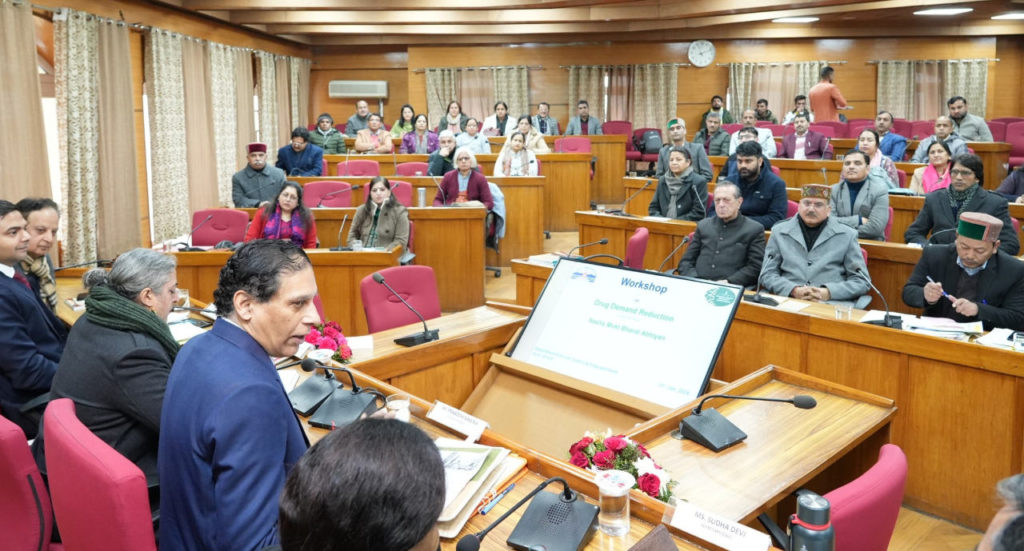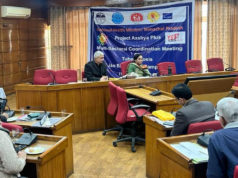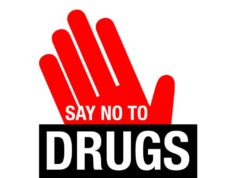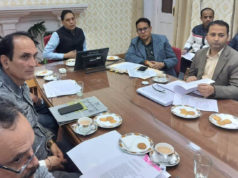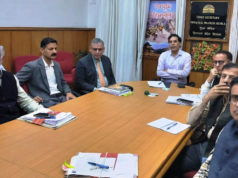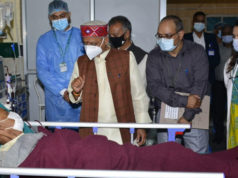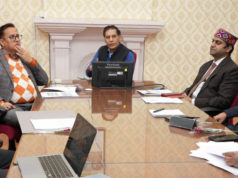Shimla – In a concerted effort to tackle the escalating issue of substance abuse, Chief Secretary Prabodh Saxena led a workshop on Drug Demand Reduction under the Nasha Mukt Bharat Abhiyan, organized by the Department of Social Justice and Empowerment. Urging a collective response to the menace, the Chief Secretary emphasized the necessity for all stakeholders to work in unison and share responsibilities.
The State government, under its zero-tolerance policy, has taken stringent measures against the smuggling of psychotropic substances and drugs. The focus is on disrupting the entire network from the origin to the destination of the illicit substances. A toll-free drug prevention helpline (1908) has been established, encouraging the public to share information on drug traffickers while providing counselling to addicts and their parents.
Highlighting the severe impact of substance abuse, especially on the youth, Chief Secretary Saxena outlined the state’s strategy encompassing preventive education, awareness campaigns, counselling, treatment, and rehabilitation. The goal is to reduce stigmatization and discrimination while building human resources for capacity development.
Addressing the workshop, Additional Session Judge and Special Judge NDPS Delhi, Arul Varma, stressed the need for a robust strategy to curb the drug menace. He emphasized community-based interventions and increased public cooperation in reducing the demand for addictive substances. Varma also underscored the importance of enhancing responsibility among parents and teachers for early detection and prevention.
The workshop emphasized the significance of treatment and rehabilitation, focusing on standard procedures and good practices. Connecting rehabilitation centers with skill development programs was proposed to equip individuals with skills for early reintegration into society, proving both therapeutic and cost-effective.
As part of crime prevention, the tracking and apprehension of substance addicts for treatment and rehabilitation were discussed. For a holistic approach, collaboration with the community was deemed imperative to garner support services, recognizing that effective drug prevention requires community backing.
Highlighting the efforts of the state police, Additional Director General of Police, Satwant Atwal, pointed out innovative practices that yielded positive results. She stressed the importance of a comprehensive strategy, with the initial step being the disruption of the drug supply chain. All law enforcement agencies are actively targeting traffickers to weaken the supply lines.
Secretary of Social Justice and Empowerment, M. Sudha Devi, shared survey findings revealing the diverse substances used by drug addicts. She outlined various measures being undertaken by the department to prevent substance abuse, emphasizing the need for a collaborative and multifaceted approach to address this pressing issue.


